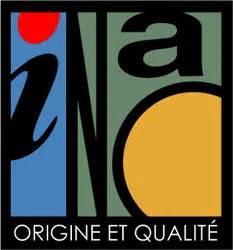Case Study
MSPO certification scheme provides numerous benefits to certificate holders
Summary
Through the Malaysian Palm Oil Certification Council (MPOCC), the Malaysian Sustainable Palm Oil (MSPO) certification programme runs under the Department of Standards Malaysia accreditation programme. MSPO Standards are the national sustainability certification standards for the oil palm industry. To ensure effective implementation of sustainability efforts at the national level, the MSPO scheme operated as a mandatory scheme beginning 2020. Sustainability and legality requirements of MSPO Standards are linked to government laws and regulations, and international best practices.
Background
As announced by the Ministry of Primary Industries (MPI), the mandatory implementation of MSPO certification started on 1st January 2020. This certification scheme is owned by the Malaysian Palm Oil Certification Council (MPOCC). The Malaysian Sustainable Palm Oil (MSPO) Certification Scheme is the national scheme in Malaysia for oil palm plantations, independent and organised smallholdings, and palm oil processing facilities to be certified against the requirements of the MSPO Standards. Malaysia has developed the Malaysian Sustainable Palm Oil (MSPO) certification scheme based on domestic laws and regulations and ratified international conventions.
The MSPO Standards contain seven (7) principles which form the general requirements of a management system framework, based on the three pillars of sustainability, i.e. economically viable, socially acceptable, and environmentally sound.
The seven principles are:
1) Management commitment and responsibility
2) Transparency
3) Compliance to legal requirements
4) Social responsibility, health, safety and employment conditions
5) Environment, natural resources, biodiversity and ecosystem services
6) Best practices
7) Development of new planting
The accreditation programme was launched by the Department of Standards Malaysia in the year of 2018. More than 20 certification bodies (CBs) have been accredited under the MSPO certification programme to accelerate this certification in the country.
Strategy
Under the initiative of the MPOCC, training on ISO/IEC 17021-1 was given to all the CBs that were interested to run this MSPO certification programme. As of March 2022, the Department of Standards Malaysia has accredited 22 CBs for the MSPO certification programme.
The MSPO standards are made available for everyone (at lower cost) and translated into many languages.
The Malaysia Sustainable Palm Oil (MSPO) certification scheme incentives are claimable by industry players.
Estates are eligible for a full auditing fees claim, which includes audit man-days, report writing, stakeholders’ consultation and peer review. They are also eligible for 50 per cent preparation costs claims, limited to the costs for MSPO policies and system documents, social impact assessment, environment aspect and impact report, high biodiversity value report, training for greenhouse gas calculation, and training for internal audit and management review.
Under the Income Tax Act, 1967 companies are entitled to claim double deduction for expenditure incurred for the purposes of obtaining the certification for recognised quality systems and standards from a certification body accredited by Department of Standards Malaysia.
Results and impact
Currently more than 5,500,000 ha total Planted Area of Independent Smallholders, Organised Smallholders and Plantations are certified (source from MSPO Trace).
MSPO certification uplifts the management system of an organisation, especially in demonstrating sustainability.
Benefits for certificate holders include:
1) Financial aids are provided
2) Reduced cost in pesticides and fertilisers
3) Future generations continue the sustainability effort
4) Safer working practices
5) Smallholders’ rights are protected
6) Higher yield and income
7) On-going technical support is provided for free
8) Larger scale of production under Sustainable Palm Oil Clusters (SPOC)
9) Certified processing mills prefer certified FFB
10) Continuous growth in knowledge of palm oil
11) Recognised land and use rights
The implementation of the MSPO provides opportunities for all, reduces inequality, improves living standards and safety of workers as well as sustainable management of natural resources.
MSPO certified palm oil gains international recognition and acceptance. The palm oil is being exported to other countries outside of Malaysia.













